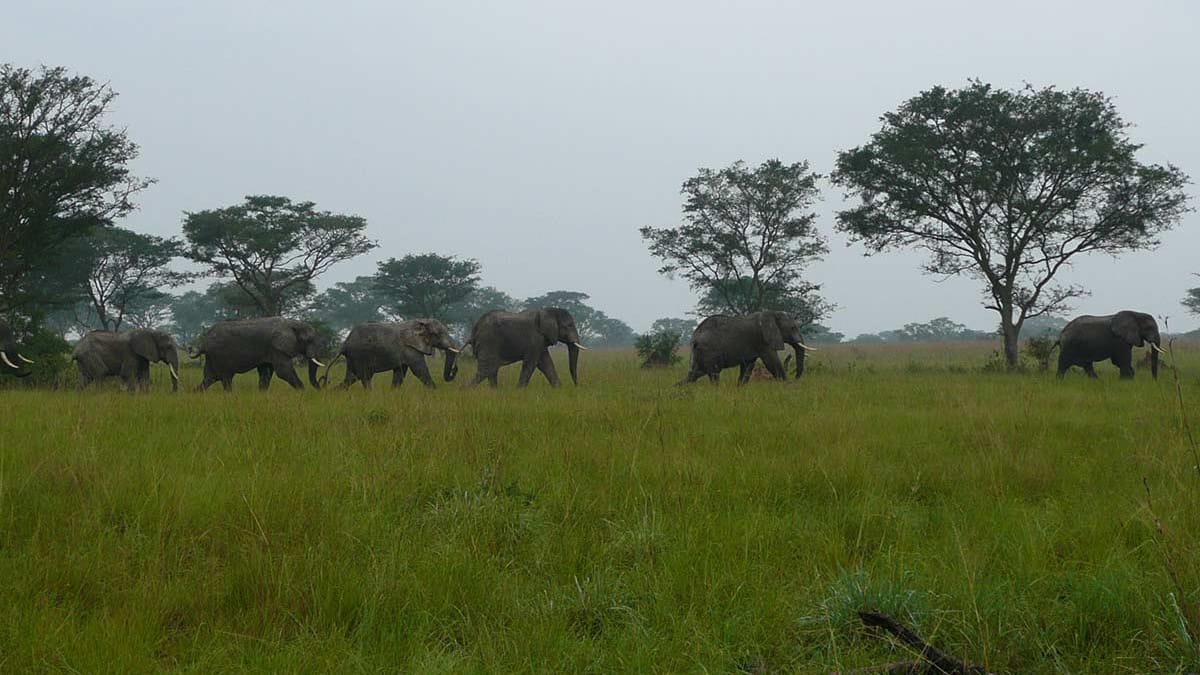The benefits of Tourism to Communities living near protected areas in Uganda


The benefits of Tourism to Communities living near protected areas in Uganda
Benefits of tourism cannot be under looked. Tourism has become one of the world’s fastest growing industries. It is an important means of generating national income for a number of developing and developed countries
For more information about tourism in East Africa or any safari, please contact us. We know East Africa and we know how to put together a safari that suite your desires. We can as well combine or tailor your safari to include all highlights such as game viewing, gorilla trekking, cultural experiences among others.
Uganda has a diverse natural attractions, good climate reflecting the combination of an equatorial location and medium to high altitudes and friendly people, providing the necessary ingredients for a vibrant tourism economy. Of recent, amenities such as hotels and game lodges of international standards have been added to the tourism assets that put Uganda at a good ranking with her neighbors, hence increasing the benefits of tourism in The Pearl of Africa.
The Uganda Wildlife Policy (1999), the Wildlife Act (Cap 200 of 2000) and the UWA Community Conservation Policy (2004) all recognize the contribution of wildlife to the well being of humanity and highlight the need to share benefits accruing from wildlife if wildlife conservation is to be meaningful.
This resulted into involvement of various stakeholders like district authorities, communities and the private sectors in wildlife management, giving birth to the term “Wildlife Use Rights”. There are six classes of Wildlife Use Rights: hunting, farming, ranching, trading, and educational and research and general extraction use rights.
This program is based on the principle that economic benefits from wildlife can lead to better custodianship of wildlife resources hence transforming the lives of millions of people living adjacent to protected Areas.
In this article, we shall discuss the benefits of tourism to the people living adjacent to protected Areas in Uganda:
Revenue Sharing Program
Uganda Wildlife Authority gives back 20% of the park entrance revenue to the neighboring communities for livelihood projects.
Employment of the rural communities in tourism enterprises
The Park has been supporting communities in employment of communities to work at different capacities, ranging from support staffs e.g. porter, and full time employees as rangers and wardens. Special attention is given to the locals surrounding the park during recruitment exercises.
Direct sale and supply of goods and services to tourism enterprises

Establishment and running of tourism enterprises by the local people
These include accommodation establishments, catering, transport, retail outlets, guiding and entertainment. The formation of these enterprises at the local level have placed power and control in the hands of the local people.
Voluntary giving/support by tourism enterprises and tourists
Voluntary support in money or in kind, given by visitors or tourism enterprises to the local people is very evident in areas surrounding the parks.
Other benefits of tourism include;
Other than the above benefits, other collaborative programs where communities benefit directly from the National Park include resource access such as fuel wood, grass, water, fish, bee keeping among others.
For more information about tourism in East Africa or any safari, please contact us. We know East Africa and we know how to put together a safari that suite your desires. We can as well combine or tailor your safari to include all highlights such as game viewing, gorilla trekking, cultural experiences among others.
Our Top packages include (plus, Benefits of tourism);
- 3 Day Kibale Chimps Tour
- 3 Day Bwindi Gorilla Trekking Tour
- 4 Day Gorilla Trekking & Bunyonyi Safari
- 5 Day Chimps & Wildlife Safari
- 5 Day Murchison Falls & Source of the Nile
- 6 Day Uganda Gorilla Trekking & Wildlife Tour
- 8 Day Uganda Primates & Wildlife Safari
- 9 Day Uganda Highlights
- 10 Day Mt Rwenzori Expedition (Margherita)
- 13 Day Uganda Exclusive Safari
- 17 Day Best of Uganda

